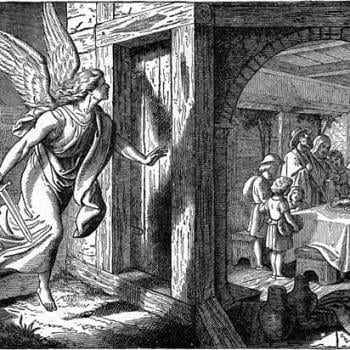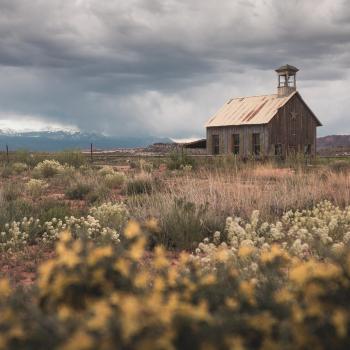After the harrowing beating, imprisonment, and miraculous release in Philippi, Paul and Silas decided it was time to move on. Just before leaving the city, however, they stopped off at Lydia’s house to see the Philippian believers who had gathered there. Luke doesn’t offer any specific names, but one can consider the possibilities . . . Lydia and her family . . . maybe some of the other women who were at the river bank. Maybe the slave girl was able to sneak away and join the fellowship. It may have been too early on in the jailer’s life as a Christian, but perhaps even he and his family had already learned of Lydia’s house and were there too. Whoever was there that day, it is easy to imagine their sadness in seeing Paul and Silas go. Their lives had been affected so profoundly. Little did they know that they were to be recorded as the earliest Christians of Europe.
It can be gleaned from other passages within the New Testament that Paul probably stopped off at Philippi a time or two more in the midst of his continued travels. However no more names of people or narrations of events that took place in the city are recorded . . . until we hit the eleventh book of the New Testament. There, we can find a letter that Paul wrote to the Philippian Catholics. This letter, or epistle, to the Philippians was written about five years after Paul had first entered the Macedonian city and met Lydia. It encouraged this early group of Christians to be committed in their faith, to strive for harmony, live humbly, and to serve cheerfully. He also warned these kind (and mostly Gentile) Philippians to avoid those who tried to coerce them into practicing the many regulations of Mosaic Law, and instead to keep their focus on Christ. Toward the end of the letter, Paul thanked the Philippians for their heartening support. Also within this letter, we meet a few more early Catholic Philippians by name.
Epaphroditus
The Philippians had great admiration for Paul and so wanted to help him in his work. They sent a representative named Epaphroditus (e-PAF-roh-DY-tuhs) to visit Paul with gifts -- possibly money, food, or other supplies -- in order to help Paul in his mission. Epaphroditus made a journey to see Paul who at the time was in prison, probably in Ephesus. Epaphroditus became terribly ill while visiting Paul, to the point of near death. Word of his infirmity got back to the Philippians who all began to fear for their brother in Christ. Thankfully, Epaphroditus recovered, bringing much relief to Paul and the Philippians. Although Paul enjoyed Epaphroditus’s presence, he thought it best to send this man back to his home after regaining his health. So, this kind man returned to Philippi with the letter that Paul wrote, surely bringing great happiness and inspiration to the Philippian Christians. It is believed that Saint Epaphroditus was the first bishop of Philippi; the church honors his life on March 22. Read about him in Philippians 2:25-30, 4:18.
Euodia and Syntyche
Euodia (yoo-OH-dee-uh) and Syntyche (SIN-ti-kee) are very briefly mentioned in Paul’s letter to the Philippians, yet many can relate to their apparent predicament. Paul merely encouraged these two Philippian women to “come to a mutual understanding.” It seems that no matter how hard we try to be good Catholics, conflict happens. Euodia and Syntyche were obviously at odds over something. It is easy to imagine a million different possibilities -- squabbles sneak into lives with so little effort it seems. Perhaps one helped Lydia clean her house more than the other. Perhaps an argument arose over their children. Maybe there was a misunderstanding of casually spoken words. Whatever the conflict was, Euodia and Syntyche can remind us that differences occur and their difficulty can affect an entire parish.
Paul didn’t offer an easy solution -- resolving quarrels often takes a large dose of effort and humility. Euodia and Syntyche are good people to think of the next time we are at a parish council meeting, working at a church festival, teaching a CCD class, or participating in other church work. Chances are that some unexpected conflict(s) will arise. Both parties should recall Paul’s plea to these women and humbly reach for a middle and forgiving ground. Read about them in Philippians 4:2.
Clement
Paul seems to randomly pull Clement’s name out of the air when he makes reference to co-workers who had helped him in his mission of preaching the Good News. For a time, some historians have tried to suggest that this Clement of Philippi was the same as Pope Clement, the fourth pope of the church. Nowadays, however, most dispute this claim. All we know is that Paul regarded many in Philippi as holy co-workers and Clement’s name surfaced. We can only assume that he was an active advocate of Christianity in Philippi. Read about him in Philippians 4:3.




